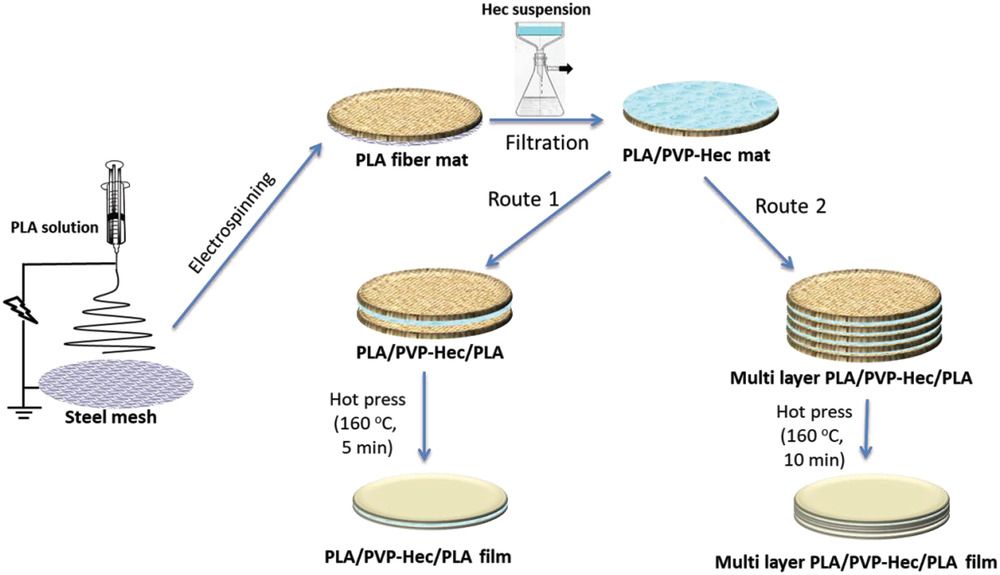News
Layering‐Triggered Delayering with Exfoliated High‐Aspect Ratio Layered Silicate for Enhanced Gas Barrier, Mechanical Properties, and Degradability of Biodegradable Polymers
02.07.2020
Zhu, Jian ; Kumar, Anil ; Hu, Pin ; Habel, Christoph ; Breu, Josef ; Agarwal, Seema
Global Challenges. (2020) https://doi.org/10.1002/gch2.202000030

Research on biodegradable polymers with the intention of fast, complete degradation in industrial compost (i‐compost) for organic recyclability is paramount to identifying solutions to the problem of excessive plastic waste originating specifically from packaging. Conventional biodegradable polymers, such as polylactide (PLA), are far from optimum for this application due to the poor gas barrier properties and slow degradation. In the paper, a new concept (triggered degradation by delayering) is shown in which exfoliated, self‐assembled sodium‐hectorite (Hec) arranged in a layer‐by‐layer manner alternating with electrospun hot‐pressed PLA provides strong gas barrier properties at high humidity and simultaneously accelerates the degradation of PLA, as tested in an enzymatic solution and i‐compost. A thin composite film (thickness 56 µm) shows a tensile strength and modulus 58 and 2000 MPa, respectively, whereas oxygen permeability is as low as 0.0064 cm3 cm m−2 day−1 bar−1. Furthermore, the delayering of the composite film by swelling of Hec layer led to accelerated degradation of PLA, as shown in detail by enzymatic and compost degradation. Since such concepts for enhanced degradability are urgently needed for sustainable utilization of biodegradable polymers in plastic waste management, the present work is an important step ahead.

